|
Short Biography and Scientific Activity of Dr. Danik Martirosyan
Education
Danik Mikaeli Martirosyan was born on February 8th, 1959, in a small village called Haghorti in Artsakh (Nagorno-Karabakh), and is part of the Armenian ethnic group (Former Soviet Union/USSR). In 1976, he graduated from Haghorti High School then attended Kazan State University, later named Kazan Federal University. Kazan State University was one of the best universities in former USSR, it was founded in 1804. It is ranked #370 in QS Global World Rankings 2021, which evaluates and considers over 5,500 universities for inclusion [1].
Danik Martirosyan studied at Kazan State University from 1979 to 1984 and graduated with a Master of Science (MSc) from the Biology faculty in the Department of Human and Animal Physiology. After completing his MSc degree, he worked from 1984 to 1986 in Kazan Oncological Clinic as a cytologist and physiologist doctor. In 1986, he was transferred to Kazan State University and worked as a researcher at the Plant Resources laboratory.
In 1986, Dr. Martirosyan began graduate school at the Institute of Experimental Biology in the Armenian Academy of Science and defended his dissertation in 1990 at Yerevan State University, Yerevan, Armenia (scientific adviser - Professor Senerik Hayrapetyan). The title of his dissertation thesis is “The Membrane Mechanism of Action of Phospholipase A2 to the Functional Activity of Helix Pomatia Neurons” [2]. Dr. Martirosyan's dissertation was approved by the Highest Attestation Commission at the Council of Ministers of the Soviet Union in Moscow on July 25th, 1990. He was then granted a Doctor’s Degree in Biology.
Postdoctoral and Senior Postdoctoral Researcher
From 1991 to 1993, Dr. Martirosyan worked as a postdoctoral research scientist in the Armenian Ministry of Health at the Scientific Research Institute of Spa Treatment and Physical Medicine, Yerevan, Armenia. From 1994-1996, he worked at Kazan State University. As a visiting scientist, he worked at the Hungarian Academy of Sciences, Balaton Limnological Research Institute, Balaton, Hungary (1993), and at the University of Giessen, Giessen, Germany (1995). Throughout his time as a researcher, he learned vital skills and gained invaluable experience in the fields of immunology, biochemistry, membranology, physiology, food science, and human nutrition.
Extraordinary Ability Scientist in Dallas, TX, USA (1997-2007)
Dr. Martirosyan moved to the United States in 1997 and worked under the special visa granted by the United States as an Extraordinary Ability Scientist in the field of Functional Food Science from 1997 to 2007. In 1998, he founded the Functional Food Center [Functional Food Center - D&A Inc., later changed to Functional Food Center Inc. (FFC)] to better research and teach about functional foods, bioactive compounds, and the development of healthy and functional food products. Since its commencement, the Functional Food Center has developed fundamental principles for functional food sciences. During this period, Dr. Martirosyan was actively involved in research related to the effects of amaranth oil (which has several bioactive compounds such as squaline, squalene, vitamin E) on patients with hypertension, diabetes, and obesity [3]. Another important project he did was an investigation of the effects of time-released garlic powder on the values of 10-year prognostic risk of acute myocardial infarction [4].
Clinical Professor, Department of Food and Nutrition Sciences, Texas Woman's University, Denton, Texas, USA ( 2005 - 2010)
Investigated amaranth seeds properties and also trained students as well as interns in the field of Functional Foods and Bioactive Compounds. Jointly with Professor Prasad organized seminars as well as conferences including 6th International Conference of Functional Food Center "Functional Foods for Chronic Diseases: Diabetes and Related Diseases", December 4–5, 2009, Texas Woman's University, Denton, TX, USA.
Assistant Professor, UTSW Medical Center in Dallas, TX, USA (2010-2014)
From December 2010 to January 2014, Dr. Martirosyan worked at the Department of Internal Medicine in UTSW’s Medical Center (University of Texas Southwestern Medical School). These were some of the most productive years of Dr. Martirosyan's career as he was able to collaborate with the best scientists from different labs in the Department of Internal Medicine. UTSW Medical Center is known as one of the best institutes for research. During Dr. Martirosyan’s time there, 2 Nobel Prize winners, Michael Brown and Joseph Goldstein, were working in the department of Internal Medicine. Brown and Goldstein had shared the 1985 Nobel Prize for their discovery of the underlying mechanisms of cholesterol metabolism, which was a very memorable moment during the UT Southwestern Obesity Alliance Weekly Seminars on Nutrition, Metabolism and Obesity.
Another enriching experience was the weekly seminars in Dr. Chandra Mohan’s lab, where Dr. Martirosyan worked. He conducted experiments with collegians on extracts of Rosa canina which contains the bioactive compounds GOPA, vitamin C, and lycopene as well as on amaranth oil with the bioactive compound squalene. From 1990 onwards, Dr. Martirosyan studied amaranth’s pharmacological properties, especially the cholesterol-lowering properties of oil extracted from seeds and the uses of several bioactive molecules such as squalene, squalene, and vitamin E. In 3 clinical studies, it was shown that amaranth oil can significantly reduce the amount of low-density cholesterol, total cholesterol, as well as triglycerides. At the same time, it increases the amount of good cholesterol (high density cholesterol) in patients with hypertension[3]. Further studies investigated whether or not amaranth oil could be beneficial for other chronic diseases, such as systemic lupus Erythematosus (SLE).
Dr. Martirosyan, jointly with Dr. Chandra Mohan, Dr. Soyoun Min, and Dr. Jack Hutcheson, led two major projects:
1. The effects of Rosa Canina on chronic glomerulonephritis, which is simply referred to as chronic nephritis, and is characterized by proteinuria. This project was done with Dr. Min, Dr. Mohan and Anna Bashmakova.
2. The effects of amaranth oil and the bioactive compound squaline on the autoimmune disease, lupus (systemic lupus erythematosus), project was done jointly with Dr. Chandra Mohan and Dr. Jack Hutcheson.
FFC's International Conferences on Functional Foods in Health and Disease Series
In 2004, Dr. Martirosyan and his team organized the first international conference of the Functional Food Center as part of the series on “Functional Foods and Chronic Diseases”. From then on, he and other groups of scientists from around the world continue to annually organize and meet to exchange ideas and research in order to better the community of functional food science. Around 30 scientists participated in FFC’s first conference. The popularity of these conferences grew after that. The 28th international conference on August 28-29, 2020, had 3,980 attendees (scientists, medical doctors, food and medical industry representatives, PhD students, dietitians, and governmental representatives [FDA, NIH, USDA) from more than 100 countries). At the Functional Food Center’s 29th international conference on "Can Functional Foods and Bioactive Compounds Reduce the Risk of Chronic and Viral Diseases?" on April 29-30, 2021, there were 4,923 registered attendees from 131 countries.
While working at the Food and Nutrition Department of Texas Woman’s University as a Clinical Professor (2005-2010), Dr. Martirosyan started organizing joint conferences with Texas Women’s University and other renowned universities in the US as well as abroad (Germany, Japan, China). 29 international conferences have been organized. These conferences were organized and co-chaired by Dr. Martirosyan as a leading scientist in the field of Functional Food Science, in collaboration with esteemed universities/ organizations in the USA and other countries. Four conferences were held in partnership with Harvard Teaching Hospital/Harvard Medical School, Beth Israel Deaconess Medical Center, as well as joint conferences with the United States Department of Agriculture (USDA), and other leading US, German, Chinese, and Japanese universities/organizations, including Southern University, Agricultural Research and Extension Center, Baton Rouge, LA, USA (2008), Texas Woman's University, Denton, TX, USA (2009), Southern Methodist University (SMU) Dallas, TX, USA (2010; 2012), University of Nevada, Las Vegas, USA (2011), San Diego University, San Diego, CA, USA (2011; 2012; 2014), University of California, Santa Barbara (Santa Barbara, California, USA (2012), Kyoto Prefectural University of Medicine, Kyoto, Japan (2013); University of California, Los Angeles (UCLA), USA (2013); University of Regensburg, Regensburg, Germany (2014); China Food Publishing Co., Chengdu, Sichuan, China (2014); Joint conference with USDA, ARS, USA at the University of San Diego, San Diego, California, USA; Harvard Teaching Hospital/Harvard Medical School, Beth Israel Deaconess Medical Center (2015, 2016, 2017, 2018, 2019); Kobe University, Kobe, Japan (2015); Ritsumeikan University, Osaka-Ibaraki Campus, Osaka, Japan (2018), and many others. Three conferences were organized at the San Diego Convention Center (2017, 2018, 2019).
Food Science Publisher
In 2004, Dr. Martirosyan founded the Food Science Publisher and its first set of books on functional food, bioactive compounds, and chronic diseases was published under his direction. Overall, more than 40 books (including 9 textbooks), 3 academic journals, 20 semiannuals, and 120 monthly issues have been published under Food Science Publisher.
Academic Society for Functional Foods and Bioactive Compounds (ASFFBC)
In 2012, Dr. Martirosyan founded the Academic Society for Functional Foods and Bioactive Compounds which now has over 7,000 members. The first International Symposium of ASFFBC, "Functional and Medical Foods with Bioactive Compounds: Science and Practical Applications" was held on May 11-12, 2013 at the Kyoto Prefectural University of Medicine, Kyoto, Japan. The event was organized by Dr. Martirosyan, Professor Hoyoku Nishino, and Professor Toshikazu Yoshikawa, MD, PhD, President of Kyoto Prefectural University of Medicine. Overall, Dr. Martirosyan has organized and chaired 17 ASFFBC symposiums and 29 Functional Food Center conferences.
Functional Food Definition
One of the most important outcomes of this period of growth for the Functional Food Center was the development of a definition for functional food. For scientists, it is critical to have a clear understanding of the steps needed to investigate and derive functional food formulations. For food industries, it is important to have knowledge about the creation of food vehicles and how to incorporate functional food formulations into them, as well as knowledge about special labels for functional food products. For governmental representatives, it is important to understand the need for having a separate category for functional food products and an approval system. At the 6th International Conference of FFC "Functional Foods for Chronic Diseases: Diabetes and Related Diseases", December 4–5, 2009, Texas Woman's University, Denton, TX, USA, Dr. Martirosyan presented a new definition of functional foods for the first time. Below is the final edition of the definition for "functional foods": "The Functional Food Center defines “functional foods” as “Natural or processed foods that contain bioactive compounds, which, in defined, effective, non-toxic amounts, provide a clinically proven and documented health benefit utilizing specific biomarkers, to promote optimal health and reduce the risk of chronic/viral diseases and manage their symptoms" [5].
Internship Programs
Dr. Martirosyan has been involved in the Functional Foods, Scientific Journalism, and Marketing internships program for academic and non-academic credits at the Functional Food Center for the last 15 years and has guided over 200 students from more than 50 universities.

Peer-Reviewed, Open Access journals founded by Dr. Martirosyan
In 2011, while working at the Internal Medicine Department at the University of Texas Southwestern Medical Center (2010-2014), Dr. Danik Martirosyan, with the support of many other scientists from the department of Internal Medicine at UTSW Medical School (Dr. Chandra Mohan, Dr. So Min, Dr. Tianfu Wu, Dr. Yuyuan (Piter) Guo, from the Department of Internal Medicine), Dr. Undurty Das, Dr. Garth Nicolson and many others started the “Functional Foods in Health and Disease” journal. The Functional Foods in Health and Disease (FFHD) Journal is a peer-reviewed, open-access international journal, which serves as the journal of the Academic Society for Functional Foods and Bioactive Compounds (ASFFBC). The journal’s overall focus is functional food science which is a new and unique area of health and nutrition. The FFHD journal articles has been indexed in the Web of Science since 2011 and in the Emerging Sources Citation Index (ESCI) since 2015. In addition, the journal was accepted into Scopus in 2019. All FFHD articles from 2011 have since been accepted and indexed within Scopus. The acceptance into both Scopus and Web of Science displays the strength of the journal and the authors and helps to expand the reach of our published articles. Around 500 articles have been published in the journal.
In 2018, Dr. Martirosyan founded the second open-access journal: "Bioactive Compounds in Health and Disease." In 2021, Dr. Martirosyan founded the third journal: "Functional Food Science".
Publications
Dr. Martirosyan has published over 70 articles (in scientific journals and books) and is the editor of 44 books, including 9 textbooks on functional food science:
By becoming our teaching partners, professors and instructors from over 70 universities and other various organizations worldwide use these textbooks to teach functional food science. Our teaching partners are provided with PowerPoint presentations that accompany each chapter of a book.Each chapter of the textbooks are composed of not only detailed descriptions on the topic, but also include colorful illustrations, test questions with the correct answers, summaries, conclusions, and references for each chapter. To make the textbook more accessible, recordings of chapters have been made as well. Over 70 universities and other various organizations worldwide use these materials to teach functional food science.
One other new suggestion by Dr. Martirosyan’s team was a mandatory certification process for those professors and instructors who would like to teach functional foods-related courses using the FFC’s textbooks. Because functional food science is relatively new, those who would like to teach it should be certified. Taking courses related to basic functional food science allows them to become eligible to teach others. With this strategy Dr. Danik Martirosyan and his team have created several certification programs which allow instructors to become certified. They can then use all teaching materials by the FFC for free when they become a teaching partner with FFC.
Online Courses & Certification Programs
Dr. Martirosyan created online courses based on the Functional Food Science textbook series offered by the FFC. Dr. Martirosyan has played an active role in advising scientists from all around the world seeking to become Certified Functional Food Professionals and Scientists. These courses include a syllabus, textbook chapters, and powerpoints. Once the participant has completed all included chapters, they can take the exam online to earn their certificate of completion.
Since 2017, Dr. Martirosyan has offered special certifications for functional food scientists as well as for functional food professionals. Scientists, medical doctors, and food industry representatives are able to choose from the following courses to fulfill the credits needed to become a Certified Functional Foods Professional or Certified Functional Foods Scientist:
- The Guided Program of Study (GPS) includes 60 hours of guided study and training. Participants work one-on-one with their instructor to create a personalized project that will provide hands-on education of functional foods that meets individual learning objectives. Unlike other training programs, you will receive daily guidance on your objectives and regularly discuss the theory behind functional food concepts as well as new research in the field with your instructors and supervisors.
- Introduced in 2020, our Personalized Project Program (PPP) involves 60 hours of self-guided study. We will construct customized lesson plans based on select chapters from the almost 200 chapters available in our Functional Foods textbook series. Similar to GPS, we will work with you to create a personalized project that will solidify your understanding and provide you with a hands-on education of functional foods.
- Our newest program, the Standardized Program of Study (SPS) provides a more objective route to earn your Functional Food Scientist/Professional certification. This course includes 8 pre-selected chapters from our Functional Foods textbook series and corresponding comprehensive quizzes. As with GPS and PPP, an independent project must be completed to demonstrate learning and to earn the certification.
After receiving this credential, CFFS or CFFP may teach students functional food science by using FFC’s textbooks, and food and medical industry representatives can create functional food products. More than 150 people have been certified as functional food professionals or functional food scientists, and many of them actively continue to work in the field and renew their certificates.
The Theory of Functional Food Science
Dr. Martirosyan is known as the author of the new functional food definition, as well as one of the founders of functional food science. Since 1996, Dr Martirosyan has been working on practical and theoretical aspects of functional foods, bioactive compounds, and functional food science. He has continually initiated discussions in a variety of publications about the necessity of definitions for bioactive compounds and functional foods and regarding functional food science as a separate branch of science. More than 10 scientific articles, two textbooks (Introduction to Functional Food Science and Basic Principles of Functional Food Science), and several textbook chapters were published on functional food science by Dr. Danik Martirosyan and his team. In 2009, Dr. Martirosyan presented a new definition of functional foods at FFC’s international conference at Texas Woman’s University. It was published in the following textbook. The definition has been developed and advanced (in 2015, 2018, 2021) by him and his team at the Functional Food Center. One of the major points of the functional food definition is to consider bioactive compounds as a backbone of functional food and as a necessary, mandatory component for any functional food product.
In the book “Basic Principles of Functional Food Science”, Dr. Martirosyan with Kasia Pisarski wrote the chapter, “Bioactive Compounds: Their Role in Functional Food and Human Health, Classifications, and Definitions” [6]. By reviewing the history of medicinal plants containing active ingredients starting from ancient history (scripts of medicinal plants, known today as opium, thyme, and liquorice, and dated from approximately 4000 BC) to the modern era (21st century), Dr. Martirosyan with co-authors concluded:
- “Food bioactive compounds are primary and secondary metabolites of nutritive and non-nutritive natural components generating health benefits by preventing or managing chronic disease or its symptoms. Each bioactive compound is unique in its structure, with physiological mechanisms and concentrations dependent on the environment where it is sourced.”
- “To test the effectiveness a bioactive compound is, we use specific biomarkers, which are molecules utilized to identify changes that occur at the cellular level and are monitored to identify health or disease. Testing specific and sensitive biomarkers help to identify the health benefits of food bioactive compounds, which are the backbone of functional foods. Enriching food with these food bioactive compounds produces functional food where structural and functional statements on packaging can only occur after proven testing of the specific and sensitive biomarkers.”
- “Excessive amounts of some bioactive compounds can be toxic; others are toxic by nature. Therapeutic doses may exceed the upper limit set the Food and Drug Administration (FDA); therefore, it is crucial to use the exact dose of the specific bioactive compound(s) for the specific disease and biomarker to avoid toxicity. The three steps to identify the upper limit and prevent toxicity are: identify the critical effect; determine the point of departure; and apply the unknown factors to the point of departure.”
Here are a few main points and findings, which in addition to the definition of functional food products, brought a roadmap on how to develop functional foods and how to approve them so that we have viable functional food products:
- Inclusion of Food Bioactive Compounds as a unit and backbone for functional foods, are one of the basic and fundamental points for the new functional food definition, as well as for the theory of functional food science.
- Mandatory inclusion of biomarkers for testing effectiveness of bioactive compounds and functional foods in clinical trials is another major point for development of functional food products that Dr. Martirosyan discovered.
- Third major point of functional food (accordingly with functional food science) is the necessity of having epidemiological studies.
- Finally, the 4th point is having after-market studies of effectiveness of the functional food product for the specific group of people for whom the product was created. This could be the final step for the approval of ideal functional food products.
The other new point in the definition was considering biomarkers to investigate effectiveness of any functional food product. In his recent publications about functional food science and steps to create functional food products, Dr. Martirosyan brought the new idea of epidemiological studies, as well as after-market studies, for the approval of functional food products.
There are not many published scientific articles on what functional food science is. In 2015, a textbook edited by Dr. Martirosyan was published: “Introduction to Functional Food Science”. This book has already been re-published several times and in 2020, the fourth edition was released. In the chapter of “A new definition of functional food by FFC: creating functional food products using the new definition”, Dr. Martirosyan, alongside coauthors, described not only the main points of the functional food definition but also provided important steps on how to create and bring functional foods to the market. The article about functional food science establishment (with co-authors) concluded that:
“Functional food science can be defined as the comprehensive, aggregate, interdisciplinary, and collaborative processes of: establishing a target and finding a bioactive compound that enables that effect, finding the correlated measurable biomarker, running testing to find proper dosage and effectiveness, performing clinical trials to ensure efficacy, creating the functional food with an informative label, releasing to market and running epidemiological studies to verify it.”
Simply put, functional food science is the research and production of functional food products. Put more rigorously, functional food science can be established as a highly regimented, highly-focused interdisciplinary science, separate from food science, that is completely focused on discovering and developing foods which have a potentially positive effect on health beyond basic nutrition, along with testing their safety, dosage, and measurable effects on the body and mind. The Functional Food Center has proposed an outline for functional food science that involves: establishing a target and finding a bioactive compound that enables that effect, finding the correlated measurable biomarker, running testing to find proper dosage and effectiveness, determining the biochemical pathway and mechanisms of action, performing clinical trials to ensure efficacy, creating the functional food with an informative label, market release, and running epidemiological studies to verify the product.
Selected Publications:
- Son J., Martirosyan D. Salient Features for GRAS Status Affirmation. Functional Food Science 2024; 4(8): 299-308. DOI: https://doi.org/10.31989/ffs.v4i8.1417
- Martirosyan D.M, Christopher S. The benefits of terpenoids as functional foods for the management of type 2 diabetes mellitus. Bioactive Compounds in Health and Disease 2024; 7(7): 345-348. DOI: https://www.doi.org/10.31989/bchd.v7i7.1426
- Zhou J. V.., Martirosyan D. Functional foods for cholesterol management: A comparison between the United States and Japan. Functional Food Science 2024; 4(6): 228-250. DOI: https://www.doi.org/10.31989/ffs.v4i6.13
- Trachtenberg T., Martirosyan D. Addressing vitamin D deficiency through nutritional strategies. Bioactive Compounds in Health and Disease 2024; 7(6): 289-301, DOI: https://www.doi.org/10.31989/bchd.v7i6.1364
- Baghdasaryan A., Martirosyan D. Economic implications of functional foods. Functional Food Science 2024; 4(6): 216-227. DOI: https://www.doi.org/10.31989/ffs.v4i6.1379
-
Pilevar Z., Martirosyan D., Ranaei V., Taghizadeh M., Balasjin N. M., Ferdousi R., Hosseini H. Biological activities, chemical and bioactive compounds of Echinophora platyloba DC: A systematic review. Bioactive Compounds in Health and Disease 2024; 7(2):95-109. DOI: https://doi.org/10.31989/bchd.v7i2.1283
-
Martirosyan D.M., Alvarado A. Functional foods regulation system: Proposed regulatory paradigm by Functional Food Center. Functional Food Science 2023; 6(11):275-289. DOI: https://www.doi.org/10.31989/ffs.v3i11.1265
-
Dutka P., Martirosyan D. The effectiveness of resveratrol in the management of childhood obesity. Functional Food Science 2023; 3(10): 193-216. DOI: https://www.doi.org/10.31989/ffs.v3i10.1244
-
Martirosyan D.M., Stratton S. Comparing the FDA's process for health claim submission and the FFC's guidelines for regulating functional foods. Functional Foods in Health and Disease, 2023; 13(9): 424-436. DOI: https://www.doi.org/10.31989/ffhd.v13i9.1228
-
Salman, I., Martirosyan, D. Migraine management: a review of healthy diets and bioactive compounds. Functional Food Science 2023; 3(8): 129-153. DOI: https://www.doi.org/10.31989/ffs.v3i8.1149
-
Buch L., Alvarado A., Oo T., Salman I., Dutka P., Hauber C., Martirosyan D. The Impact of Food Deprivation and Starvation on Mental Health: Blockade on Artsakh (Nagorno - Karabakh). Functional Food Science 2023; 3(8): 154-178. DOI: https://www.doi.org/10.31989/ffs.v3i8.1204
-
Martirosyan, D. M., Stratton S. Advancing functional food regulation. Bioactive Compounds in Health and Disease 2023; 6(7): 166-171. DOI: https://www.doi.org/10.31989/bchd.v6i7.1178
-
Williams K., Oo T., Martirosyan D. M., Exploring the effectiveness of lactobacillus probiotics in weight management:
A literature review. Functional Food Science 2023; 3(5): 42-54. DOI: https://www.doi.org/10.31989/ffs.v3i5.1115
-
Martirosyan, D. M., Stratton S. Quantum and tempus theories of function food science in practice. Functional Food Science 2023; 3(5): 55-62. DOI: https://www.doi.org/10.31989/ffs.v3i5.1122
-
Mirmiranpour H., Ashoori R. M., Mikaeili A. S., Chen B., Martirosyan D. Investigating the changes of some enzymes and metabolites of the Urea cycle in patients with type 2 diabetes treated with squalene. Bioactive Compounds in Health and Disease 2023; 6(5): 73-85. DOI: https://www.doi.org/10.31989/bchd.v6i10.1085
-
Williams K., Fielding L, Davis J., Martirosyan D.M. The blockade of Artsakh causing long-term food, nutrition shortage and starvation: How functional food education can help resolve health related conditions. Functional Foods in Health and Disease 2023;13(3):97-116. DOI: https://www.doi.org/10.31989/ffhd.v13i3.1081
-
Mirmiranpour H, Ashoori M.R., Mikaeili A.S., Chen B, Martirosyan D.M., Investigating the changes of the components of the Krebs cycle in patients with type 2 diabetes treated with squalene. Bioactive Compounds in Health and Disease 2023; 6(2): 1-12. DOI: https://www.doi.org/10.31989/bchd.v6i2.1059
-
Marecek S., Martirosyan D. An assessment of clinical trials used in functional food science. Functional Foods in Health and Disease 2023; 13(2): 22-35. DOI: https://www.doi.org/10.31989/ffhd.v13i2.1077
-
Martirosyan D.M., Sanchez S.S. Quantum and Tempus Theories of Functional Food Science: Establishment of dosage and time of consumption of functional food products. Functional Food Science 2022; 2(11): 258-276. DOI: https://www.doi.org/10.31989/bchd.v5i11.1035
-
Martirosyan D., Ashoori M.R., Mikaeili A.S., Pezeshki S., Serani A., Lee M., Mirmiranpour H. Inflammatory factors and immunoglobulins alterations in subjects with type 2 diabetes mellitus treated with squalene. Functional Food Science 2022; 2(8):181-197. DOI: https://www.doi.org/10.31989/ffs.v2i8.979
-
Mirmiranpour H., Ashoori M., Mikaeili A., Pezeshki S., Serani A., Vassar R., Martirosyan D. The effect of squalene on lipid profile and some oxidative biomarkers in patients with type 2 diabetes mellitus. Functional Food Science 2022; 2(7): 144-156. DOI: 10.31989/ffs.v%vi%i.949
-
Mirmiranpour H., AshooriM., Mikaeili A.S., Pezeshki S., Serani A., BaezA., and Martirosyan D. The effect of squalene on proteinuria in patients with type 2 diabetes mellitus. Bioactive Compounds in Health and Disease. 2022; 5(6): 117-135. DOI: https://www.doi.org/10.31989/bchd.v5i6.945
-
Martirosyan D., Jahanbakhshi F., Foroughi-Gilvaee M.R., Mousavi F., Faranoush P., Ashoori M.R., Shahnazari-Ava M., Mikaeili A.S., Mirmiranpour H. Evaluation of the effect of electron beam therapy on oxidative stress and some minerals in patients with type 2 diabetes mellitus. Functional Food Science 2022; 2(5): 124-135. DOI: https://www.doi.org/ffs.v2i5.935
-
Martirosyan D.M., Lampert T., Lee M. A comprehensive review on the role of food bioactive compounds in functional food science. Functional Food Science, 2022; 3(2): 64-79. DOI: https://www.doi.org/10.31989/ffs.v2i3.906
-
Martirosyan D.M., Sanchez S.S. Quantum Theory of Functional Food Science: Establishment of dosage of bioactive compounds in functional food products. Functional Food Science 2022; 3(2): 79-93. DOI: https://doi.org/10.31989/ffs.v2i3.915
-
Martirosyan D.M, Lampert T., Ekblad M. Classification and regulation of functional food proposed by the functional food center. Functional Food Science 2022; 2(2): 25-46. DOI: https://www.doi.org/10.31989/ffs.v2i2.890
-
Martirosyan D.M., Ashoori M. R., Mikaeili A. S., Serani A., Sussman I., Mirmiranpour H. The effect of Squalene on cellular energy and inflammation in type 2 diabetes patients. Dietary Supplements and Nutraceuticals 2022; 1(12): 16-29. DOI: https://www.doi.org/10.31989/dsn.v1i12.1025
-
Martirosyan D., Ashoori M.R., Serani A., Zhang K., Mirmiranpour H. Assessment of squalene effect on antioxidant enzymes and free radicals in patients with type 2 diabetes mellitus. Bioactive Compounds in Health and Disease 2022; 5(11):236-250. DOI: https://www.doi.org/10.31989/bchd.v5i11.1005
-
Martirosyan D.M., Ekblad M. Functional Foods Classification System: Exemplifying through Analysis of Bioactive Compounds. Functional Food Science, 2022; 2(4): 94-123. DOI: 10.31989/ffs.v2i4.919
-
Martirosyan D., Jahanbakhshi F., Ashoori M. R., Alkhamis S., Pezeshki S., Mikaeili A. S., Mirmiranpour H. Effect of oral administration and topical gel application of thymol and low-level laser therapy on oxidative stress, inflammatory biomarkers and dermatitis in patients with type 2 diabetes mellitus. Bioactive Compounds in Health and Disease. 2022; 5(4): 93-105. DOI: https://www.doi.org/10.31989/bchd.v5i4.910
-
Martirosyan D.M., Ashoori M.R., Rezaeinezhad A., Jahanbakhshi F., Pezeshki S., Mikaeili A.S.,Alkhamis S., Mirmiranpour H. Effects of quercetin and low-level laser on oxidative and inflammatory factors among patients with type 2 diabetes mellitus and mild cognitive impairment. Bioactive Compounds in Health and Disease 2022; 5(1): 1-12. DOI: https://www.doi.org/10.31989/bchd.v5i1.877
-
Gooch K., Martirosyan D. Where Tradition Meets Science: Microbial Diversity and Bioactive Compounds in Armenian Fermented Milk Products. Bioactive Molecules and Pharmaceuticals 2022;1(9):1-17. DOI: https://www.doi.org/10.31989/bmp.v1i9.1006
-
Martirosyan D.M., Sanchez S.S. Establishment of dosage of bioactive compounds in functional food products. Functional Food Science, 2022; 3(2): 79-93. DOI: https://doi.org/10.31989/ffs.v2i3.915
-
Martirosyan D.M, Lampert T., Ekblad M. Classification and regulation of functional food proposed by the functional food center. Functional Food Science 2022; 2(2): 25-46. DOI: https://www.doi.org/10.31989/ffs.v2i2.890
-
Martirosyan D.M., Ashoori M.R., Rezaeinezhad A., Jahanbakhshi F., Pezeshki S., Mikaeili A.S.,Alkhamis S., Mirmiranpour H. Effects of quercetin and low-level laser on oxidative and inflammatory factors among patients with type 2 diabetes mellitus and mild cognitive impairment. Bioactive Compounds in Health and Disease 2022; 5(1): 1-12. DOI: https://www.doi.org/10.31989/bchd.v5i1.877
-
Martirosyan D.M, Min S.Y., Xie C., Yan M., Bashmakov A., Williams S., Mohan C. The effect of rosehip on experimental anti-GBM glomerulonephritis in systemic lupus erythematosus murine models. Functional Food Science 2021; 1(12): 86-96. DOI: https://www.doi.org/10.31989/ffs.v1i12.873
-
Agarwal P., Rutter E., Martirosyan D.M. Analysis of contemporary epidemiological study research design formats on addressing functional food efficacy. Functional Food Science 2021; 1(12): 97-116. DOI: https://www.doi.org/10.31989/ffs.v1i12.882
-
Martirosyan D., Hutcheson J., Sajitharan D., Williams S., Mohan C. The effect of amaranth oil on proteinuria in lupus prone mice. Functional Food Science 2021. 1(10): 39-49. DOI: https://www.doi.org/10.31989/ffs.v1i10.848
-
Martirosyan D., Hutcheson J., Sajitharan D., Williams S., Mohan C. The effect of amaranth oil on autoantibodies in lupus prone mice. Bioactive Compounds in Health and Disease 2021; 4(10): 226-239. DOI: https://www.doi.org/10.31989/bchd.v4i10.847
-
Martirosyan D., von Brugger J., Bialow S. Functional food science: Differences and similarities with food science. Functional Foods in Health and Disease 2021. 11(9): 408-430. DOI: https://www.doi.org/10.31989/ffhd.v11i9.831
-
Martirosyan D., Ghomi H., Ashoori M.R., Rezaeinezhad A., Mikaeili A.S., Jahanbakhshi F., Mirmiranpour H. Study of the effect of gallic acid and cold plasma on the levels of inflammatory factors and antioxidants in the serum sample of subjects with type 2 diabetes mellitus. Bioactive Compounds in Health and Disease 2021; 4(8): 167-179. DOI: 10.31989/bchd.v4i8.824
-
Chen S., Martirosyan D. FOSHU-approved Fibersol®-2 product review. Bioactive Compounds in Health and Disease. 2021; 4(5): 79-89. DOI: https://www.doi.org/10.31989/bchd.v4i5.797
-
Martirosyan D., Kanya H., Nadalet C. Can functional foods reduce the risk of disease? Advancement of functional food definition and steps to create functional food products. Functional Food in Health and Disease 2021; 11(5): 213-221. DOI: https://www.doi.org/10.31989/ffhd.v11i5.788
-
Adany A., Kanya H., Martirosyan D. Japan’s health food industry: An analysis of the efficacy of the FOSHU system. Functional Foods in Health and Disease 2021; 4(4):63-78. DOI: https://www.doi.org/10.31989/bchd.v4i4.795
-
Martirosyan D., Ghomi H., Ashoori M.R., Rezaeinezhad A., Mirmiranpour H. The effect of cold plasma on antioxidant enzymes, minerals, and some of the levels of the biochemical parameters in the subjects with type 2 diabetes mellitus samples. Bioactive Compounds in Health and Disease 2021; 4(2): 14-23. DOI: https://www.doi.org/10.31989/bchd.v4i2.783
-
Chen S., Martirosyan D. Marketing strategies for functional food products. Functional Foods in Health and Disease 2021; 11(8): 345-356. DOI: https://www.doi.org/10.31989/ffhd.v11i8.817
-
Martirosyan DM., Shahnazari-Aval M., Ashoori MR., Mikaeili AS., Nakhjavani M., Mirmiranpour H. The effect of electron beam on oxidative stress and inflammatory factors in diabetes mellitus: An in vitro and in vivo study. Functional Foods in Health and Disease 2021; 11(7): 333-344. DOI: https://www.doi.org/10.31989/ffhd.v11i7.803
-
Otunola G.A., Martirosyan D. Choosing suitable food vehicles for functional food products. Functional Foods in Health and Disease 2021; 11(2): 44-55. DOI: https://www.doi.org/10.31989/ffhd.v11i2.764
-
Polamarasetti P., Martirosyan D. Dietary deficiencies exacerbate disparity in COVID-19 and nutrition recommendations for vulnerable populations. Bioactive Compounds in Health and Disease 2020; 3(11): 204-213. DOI: https://www.doi.org/10.31989/bchd.v3i11.759
-
Gilbert K., Allen A., Pitts B., Martirosyan D. Coronavirus concerns related to the war between Azerbaijan and Artsakh: War as a separate and independent factor for rise in COVID-19 cases and death: how to use vitamins, and other bioactive compounds in the absence of vaccine. Bioactive Compounds in Health and Disease 2020; 3(12): 256-273. DOI: https://www.doi.org/10.31989/bchd.v3i12.765
-
Martirosyan D., Ashoori M.R., Mirmiranpour H. Synergistic effect of laser irradiation and cinnamic acid as functional food on oxidative stress in type 2 diabetes mellitus. Bioactive Compounds in Health and Disease 2020; 3(9): 154-165.
DOI: https://www.doi.org/10.31989/bchd.v3i9.746
-
Giordano C., Martirosyan D. The effects of vitamin D on respiratory illnesses: a prospective natural treatment for COVID-19 symptoms. Bioactive Compoinds in Health and Disease 2020; 3(8):124-140 DOI: https:/doi.org/10.31989/bchd.v3i8.734
-
Polamarasetti P., Martirosyan D. Nutrition planning during the COVID-19 pandemic for aging immunity. Bioactive Compounds in Health and Disease 2020; 3(7): 109-123 DOI: https://doi.org/10.31989/bchd.v3i7.733
-
Martirosyan D.M., The Emerging Potential of Functional Foods in Viral Disease Prevention. Functional Foods in Health and Disease 2020; 6(10): 95-99. DOI: https://www.doi.org/10.31989/bchd.v3i6.726
-
Martirosyan D., Ashoori M. R., Mirmiranpour H. The effect of low level-laser irradiation on antioxidant enzymes and mineral levels in serum of patients with type 2 diabetes mellitus. Bioactive Compounds in Health and Disease 2020; 3(5): 82-96. DOI: 10.31989/bchd.v3i5.705
-
Sadohara R., Martirosyan D. Functional Food Center’s vision on functional foods definition and science in comparison to FDA’s health claim authorization and Japan’s Foods for Specified Health Uses. Functional Foods in Health and Disease 2020; 10(11): 465-481. DOI: https://www.doi.org/10.31989/ffhd.v10i11.753
-
Liufu J., Martirosyan D. FFC’s Advancement of the Establishment of Functional Food Science. Functional Food in Health and Disease 2020; 10(8): 344-356. DOI: https://doi.org/10.31989/ffhd.v10i8.729
-
Wei G., Martirosyan D. Hair Loss: A Review of the Role of Food Bioactive Compounds. Bioactive Compounds in Health and Disease 2019; 2(5): 94-125. DOI: https://doi.org/10.31989/bchd.v2i5.610
-
Louis-Jean S., Martirosyan D.M. Nutritionally Attenuating the Human Gut Microbiome to Prevent and Manage Metabolic Syndrome. J Agric Food Chem 2019; 67(46):12675-12684. DOI: https://doi.org/10.1021/acs.jafc.9b04879
-
Leem C and Martirosyan D.M. The bioactive compounds of probiotic foods/supplements and their application in managing mental disorders. Bioactive Compounds in Health and Disease 2019; 2(10): 206-220. DOI: https://doi.org/10.31989/bchd.v2i10.431
-
Martirosyan D., Miller E., Bioactive Compounds: The Key to Functional Foods. Bioactive Compounds in Health and Disease 2018; 1(3): 36-39. DOI: https://doi.org/10.31989/bchd.v1i3.539
-
Louis-Jean S and Martirosyan D., Immunonutrition: Modulating the immune response in critically Ill and surgical patients through nutrition. Bioactive Compounds in Health and Disease 2018; 1(7): 82-85. DOI: https://doi.org/10.31989/bchd.v1i7.587
-
Gur J., Mawuntu M., Martirosyan D. FFC’s Advancement of Functional Food Definition. Functional Foods in Health and Disease 2018; 8(7): 385-397 DOI: https://doi.org/10.31989/ffhd.v8i7.531
-
Zong J., Martirosyan D.M. Anticancer effects of garlic and garlic-derived bioactive compounds and its potential status as functional food. Bioactive Compounds in Health and Disease, 2018; 1(2): 16-35. DOI: https://doi.org/10.31989/bchd.v1i2.530
-
Singharaj B., Castaneda L., Martirosyan D., Functional foods, conventional treatment and bioactive compounds, assist in management of inflammatory bowel disease. Bioactive Compounds in Health and Disease 2018; 1(4); 40-59. DOI: https://doi.org./ 10.31989/bchd.v1i4.409
-
Singharaj B., Pisarski K., and Martirosyan D.M. Managing hypertension: relevant biomarkers and combating bioactive compounds. Functional Foods in Health and Disease 2017; 7(6); 442-461. DOI: https://doi.org/10.31989/ffhd.v7i6.324
-
McAnany B., Martirosyan D. The effects of bioactive compounds on Alzheimer’s disease and mild cognitive impairment. Functional Foods in Health and Disease 2016; 6(6): 329- 343. DOI: https://doi.org/10.31989/ffhd.v6i6.257
-
Reynolds T., Martirosyan D.M. Nutrition by design: a review of biotechnology in functional food of plant origin. Functional Foods in Health and Disease 2016; 6(2): 110-120. DOI: https://doi.org/10.31989/ffhd.v6i2.236
-
Coats R., Martirosyan D. The effects of bioactive compounds on biomarkers of obesity. Functional Foods in Health and Disease 2015; 5(11): 365- 380. DOI: https://doi.org/10.31989/ffhd.v5i11.219
-
Martirosyan D.M., Singh J. A new definition of functional food by FFC: what makes a new definition unique? Functional Foods in Health and Disease 2015; 5(6): 209-233. DOI: https://doi.org/10.31989/ffhd.v5i6.183
-
Pacier C., Martirosyan D.M. Vitamin C: optimal dosages, supplementation and use in disease prevention. Functional Foods in Health and Disease 2015; 5(3): 89-107. DOI: https://doi.org/10.31989/ffhd.v5i3.174
-
Nikolaevsky V.A., Martirosyan D.M., Muzalevskaya E.N., Miroshnichenko L.A., Zoloedov V.I. Hepatotropic, antioxidant and antitoxic action of amaranth oil. Functional Foods in Health and Disease 2014; 4(5):159-171. DOI: https://doi.org/10.31989/ffhd.v4i5.18
-
Fan C., Pacier C., Martirosyan D.M. Rose hip (Rosa canina L): A functional food perspective. Functional Foods in Health and Disease 2014; 4(12): 493-509. DOI: https://doi.org/10.31989/ffhd.v4i12.159
-
Blinkova L., Martirosyan D., Pakhomov Y., Dmittrieva O., Vaughn R., Altshuler M. Nonculturable forms of bacteria in lyophilized probiotic preparations. Functional Foods in Health and Disease 2014; 4(2): 66-76. DOI: https://doi.org/10.31989/ffhd.v4i2.29
-
De Meester, F., Takahashi, T., Singh, R.B., Toda, E., Shin, H.H., Lee, M.K., Beehary, V., Hristova, K., Fedacko, J., Pella, D.,Wilson, D.W., Juneja, L.R., Martirosyan, D.M. Nutrition in transition from Homo erectus to Homo modestis. World Heart Journal 2013; 5(1): 33-46.
-
Pathak M., Martirosyan D. Optimization of an effective growth medium for culturing probiotic bacteria for applications in strict vegetarian food products. Functional Foods in Health and Disease 2012; 2(10): 369-378.
DOI: https://doi.org/10.31989/ffhd.v2i10.75
-
Pathak M., Martirosyan D.M. Immunodetection and quantification of insulin-like antigens in sprouts: development of an efficient of functional food. Functional Foods in Health and Disease 2011; 1(11): 492- 507. DOI: https://doi.org/10.31989/ffhd.v1i11.111
-
Sobenin I.A, Pryanishnikov V.V, Kunnova L.M, Rabinovich Y.A, Martirosyan D.M, Orekhov A.N. The effects of time-released garlic powder tablets on multifunctional cardiovascular risk in patients with coronary artery disease. Lipids Health Dis. 2010; 9:(119). DOI: https://doi.org/10.1186/1476-511X-9-119
-
Kadoshnikov S.I., Kadoshnikova I. G., Kulikov Y. A., Martirosyan D.M. Research of Fractional Composition of Protein of Amaranth. Current Nutrition and Food Science 2008; 4(3): 196-205. DOI: https://doi.org/10.2174/157340108785133347
-
Ramanauskiene K., Savickas A., Ivanauskas L., Kalveniene Z., Kasparaviciene G., Banionyte I., Amsiejus A., Martirosyan D.M. Analysis of Phenolic Acids in Propolis Using the High-Performance Liquid Chromatography Technique. Current Nutrition and Food Science 2008; 4(3): 209-212. DOI: https://doi.org/10.2174/157340108785133301
-
Martirosyan D.M., Miroshnichenko L.A., Kulakova S.N., Pogojeva A.V., and Zoloedov V.I. Amaranth oil application for coronary heart disease and hypertension. Lipids in Health and Disease 2007; 6(1) DOI: https://doi.org/10.1186/1476-511X-6-1
-
Ramanauskien K., Savickas A., Briedis V., Masteikova R., Muselik J., Chalupova J., Baranauskas A., Martirosyan D.M. Quality Evaluation of the Green Tea Extract Containing Capsules and Investigation of their Antioxidant Activity. Current Nutrition and Food Science 2007; 3(4): 324-327, DOI: https://doi.org/10.2174/1573401310703040324
Textbooks organized and edited by Dr. Danik Martirosyan
-
Martirosyan D: Introduction to Functional Food Science, Textbook Volume 1, 4th edition. Dallas, Texas. Food Science Publisher; 2015.
-
Martirosyan D: Functional Foods for Chronic Diseases, Textbook Volume 2. Dallas, Texas. Food Science Publisher; 2008.
-
Martirosyan D and Jin-Rong Zhou: Functional Foods and Cancer: Cancer Biology and Dietary Factors, Textbook Volume 3. Dallas, Texas. Food Science Publisher; 2017.
-
Martirosyan D and Jin-Rong Zhou: Functional Foods and Cancer: Bioactive Compounds and Cancer, Textbook Volume 4. Dallas, Texas. Food Science Publisher; 2017.
-
Martirosyan D and Jin-Rong Zhou: Functional Foods and Cancer: Functional Foods in Integrative Oncology, Textbook Volume 5. Dallas, Texas. Food Science Publisher; 2017.
-
Martirosyan D: Basic Principles of Functional Food Science, Textbook, Volume 6. Dallas, Texas. Food Science Publisher; 2017.
-
Martirosyan D and Uma Naidoo: Functional Foods and Mental Health, Textbook Volume 7. Dallas, Texas. Food Science Publisher; 2019
-
Martirosyan, D: Functional Foods and Viral Diseases, Textbook Volume 8. Dallas, Texas. Food Science Publisher; 2020.
-
Martirosyan D and Haslberger A: Functional Foods in Healthy Aging, Textbook Volume 9. Dallas, Texas. Food Science Publisher; 2021.
-
Martirosyan D and Morotta F: Functional Foods in Obesity Management, Textbook Volume 10. Dallas, Texas. Food Science Publisher; 2022.
-
Martirosyan D: Bioactive Food Ingredients in Inflammation and Obesity Management Textbook Volume 10. Dallas, Texas. Food Science Publisher; 2022.
References:
- QS World University Rankings, https://www.topuniversities.com/university-rankings/world-university-rankings/2021 , retrieved on May 29th, 2021
- Danik M. Martirosyan, The Membrane Mechanism of Action of Phospholipase A2 to the Functional Activity of Helix Pomatia Neurons, Armenian Academy of Sciences, USSR, 1989, Pages: 1-109
- Danik M Martirosyan, Lidia A Miroshnichenko, Svetlana N Kulakova, Ala V Pogojeva & Vladimir I Zoloedov. Amaranth oil application for coronary heart disease and hypertension. Lipids in Health and Disease, 2007, 6, 1, DOI: https://doi.org/10.1186/1476-511X-6-1
- Igor A Sobenin, Valentin V Pryanishnikov, Lyudmila M Kunnova, Yevgeny A Rabinovich, Danik M Martirosyan and Alexander N Orekhov The effects of time-released garlic powder tablets on multifunctional cardiovascular risk in patients with coronary artery disease. Lipids in Health and Disease 9, 119 (2010). DOI: https://doi.org/10.1186/1476-511X-9-119
- Martirosyan D., Kanya H., Nadalet C. Can functional foods reduce the risk of disease? Advancement of functional food definition and steps to create functional food products. Functional Food in Health and Disease 2021. 11(5): 213-221. DOI: https://www.doi.org/10.31989/ffhd.v11i5.788
|
|
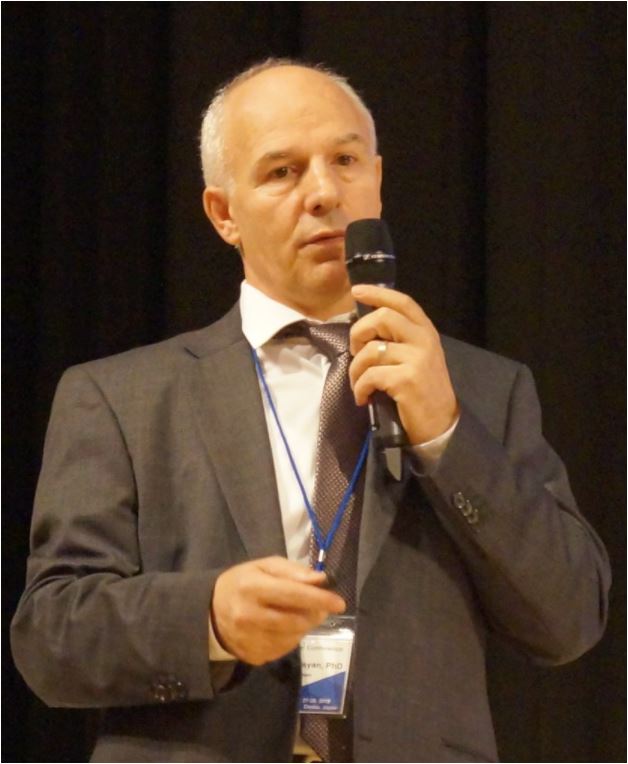 Danik Martirosyan, PhD Danik Martirosyan, PhD
(Photo from 2018, Osaka, Japan)
President, Functional Food Center, Functional Food Institute, Dallas, TX, USA; Editor-in-Chief, The Journal of Functional Foods in Health and Disease.
Certified Functional Food Scientist,
Certificate number: 1000FFC/FFI.
Education and Leadership Positions
|
Birth Date
|
Danik Mikaeli Martirosyan was born in 1959 in a small village called Haghorti in Artsakh (Nagorno-Karabakh), Former USSR
|
|
1976
|
Graduated high school in Haghorti, Artsakh, USSR
|
|
1979-1984
|
Studied at Kazan State (Federal) University, Kazan, USSR and earned his Master of Science in Biology
|
|
1984-1986
|
Worked in Kazan City Oncological Clinic, Kazan, USSR, as a Cytologist and Physiologist Doctor
|
|
1986-1989
|
PhD student at the Institute of Experimental Biology, Armenian Academy of Sciences, Yerevan Armenia
|
|
1990
|
Dissertation thesis defended at Yerevan State University, Armenia, and approved by the Highest Attestation Commission at the Council of Ministers of the Soviet Union in Moscow on July 25th, 1990.
|
|
1991-1996
|
Postdoctoral and Senior Postdoctoral Researcher: Armenian Ministry of Health, Yerevan, Armenia; Hungarian Academy of Sciences, Balaton, Hungary; The University of Giessen, Giessen, Germany; and Kazan State (Federal) University, Russia
|
|
1997
|
Moved to Dallas, TX, USA and received an O1 visa as an Extraordinary Ability Scientist; worked under this visa for 10 years.
|
|
1998
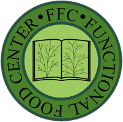
|
Founded D&A Inc./ "Functional Food Center" in Dallas, TX, USA
|
|
1998–Present
|
President, Functional Food Center Inc, Dallas, TX, USA
|
|
2005-2010
|
Clinical Professor, Texas Woman's University, Denton, TX, USA
|
|
2010-2014
|
Assistant Professor, Department of Internal Medicine, UTSW Medical Center (University of Texas Southwestern Medical School), Dallas, TX, USA
|
|
2014-Present
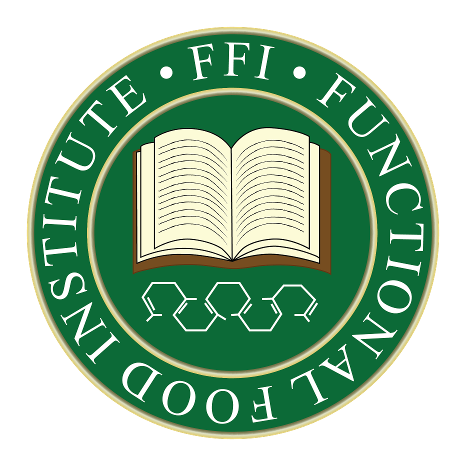
|
President, Functional Food Institute, San Diego, California, USA; Functional Food Center Inc., Dallas, TX, USA
|
Key Dates
|
2004
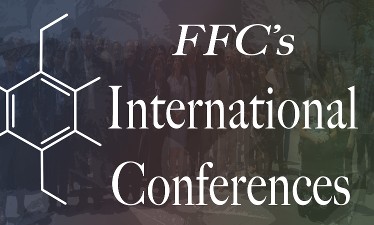
|
Organized and Chaired 1st International Conference on “Functional Foods and Chronic Diseases” in Dallas, TX, USA
|
|
2005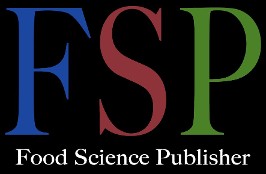
|
Founded the "Food Science Publisher," which has published more than 40 books (including 9 textbooks), 3 academic journals, 20 semiannuals, and 120 monthly issues
|
|
2011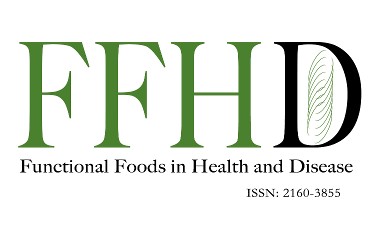
|
Created peer-reviewed, open-access journal "Functional Foods in Health and Disease"
|
|
2012
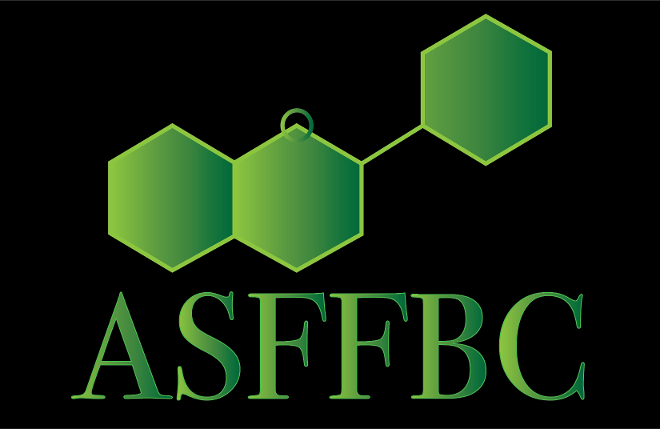
|
Founded the "Academic Society for Functional Foods & Bioactive Compounds" (ASFFBC) which now has over 7,000 members.
|
|
2018
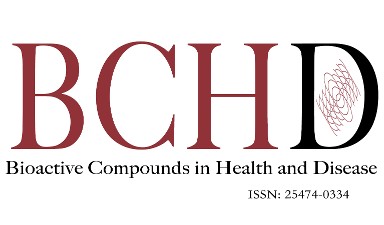
|
Founded 2nd open-access, peer-reviewed journal: “Bioactive Compounds in Health and Disease”
|
|
2021
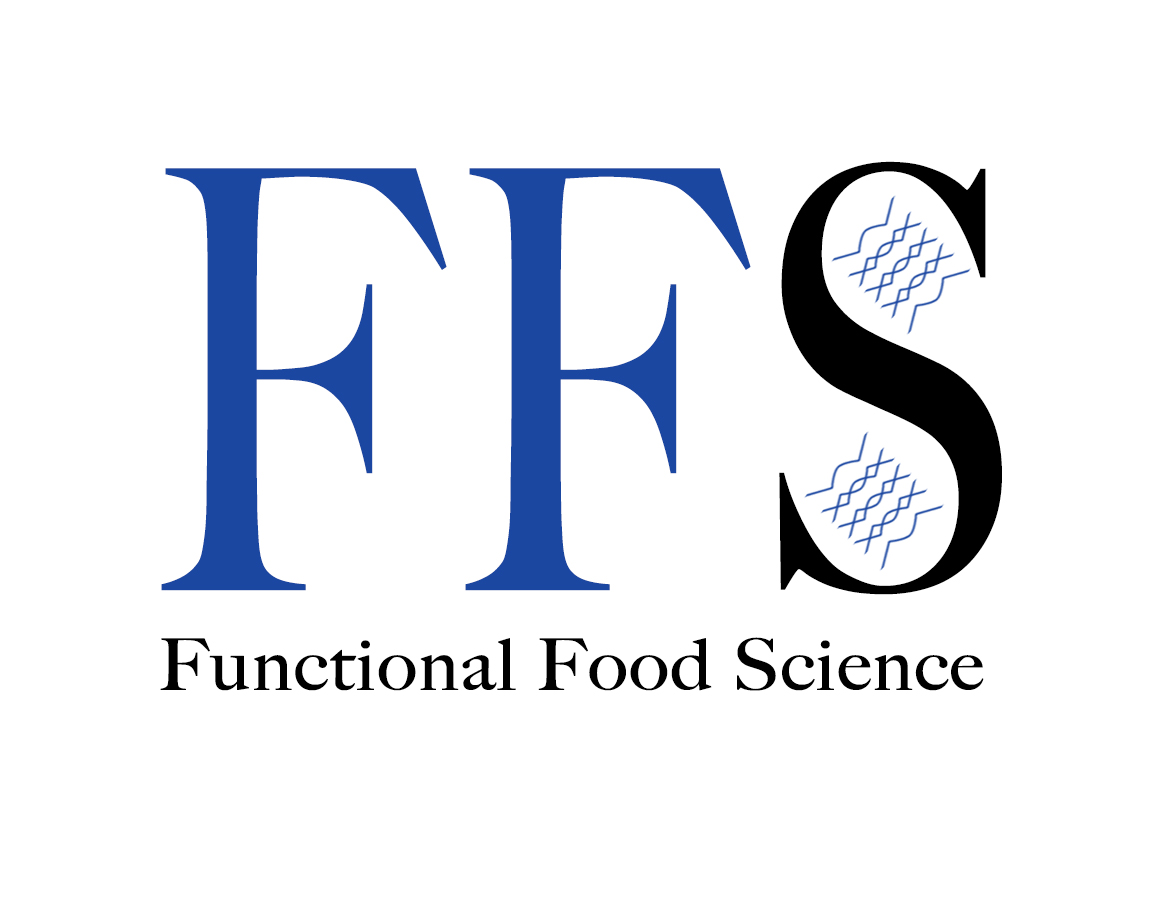
|
Founded 3rd open-access, peer-reviewed journal: "Functional Food Science"
|
31 International Conferences Organized and Chaired by Dr. Martirosyan in the Field of Functional Food Science
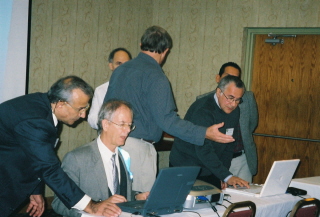
1st International Conference of FFC - "Functional Foods for the Prevention and Treatment of Cardiovascular Diseases", November 16-17, 2004, Holiday Inn Select Hotel, Richardson, Texas, USA.
Organized and Chaired by Dr. Danik Martirosyan

6th International Conference of FFC - "Functional Foods for Chronic Diseases: Diabetes and Related Diseases", December 4–5, 2009, Texas Woman's University, Denton, TX, USA. Conference organized by FFC and Texas Woman's University (TWU).
Chairmen: Danik Martirosyan, PhD, and Chandan Prasad, PhD, Professor

7th International Conference of FFC - "Functional Foods in the Prevention and Management of Metabolic Syndrome", December 3-4 , 2010, Southern Methodist University (SMU) Dallas, TX, USA. Conference organized by FFC and Southern Methodist University (SMU)
Chairmen: Danik Martirosyan, PhD, William C. Orr, PhD, Professor, and Nicola Abate, MD, Professor
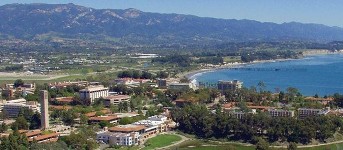
10th International Conference of FFC - "Functional Foods and Bioactive Compounds in Health and Disease: Science and Practice", March 13-15, 2012, University of California, Santa Barbara (Santa Barbara, California, USA). Conference organized by FFC and University of California at Santa Barbara.
Chairman: Dr. Danik Martirosyan, PhD
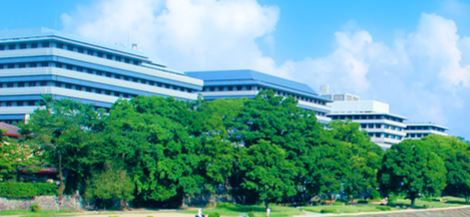
13th International Conference of FFC - 1st International Symposium of ASFFBC - "Functional and Medical Foods with Bioactive Compounds: Science and Practical Application", May 11-12, 2013, Kyoto Prefectural University of Medicine, Kyoto, Japan. Conference organized by FFC and Kyoto Prefectural University of Medicine,
Chairmen: Danik Martirosyan, PhD, and Hoyoku Nishino, PhD, MD, and Toshikazu Yoshikawa, MD, PhD, President of Kyoto Prefectural University of Medicine
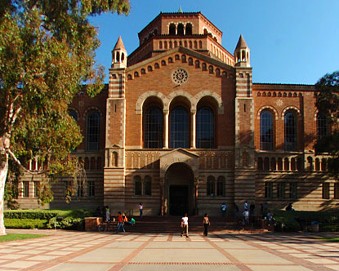
14th International Conference of FFC - 2nd International Symposium of ASFFBC - "Functional Foods and Bioactive Compounds in the Management of Chronic Inflammation: Science and Practical Application", August 20-22, 2013, University of California, Los Angeles (UCLA), USA. Conference organized by FFC and University of California, Los Angeles (UCLA)
Chairmen: Danik Martirosyan, PhD, FFC, and Anahid Jewett, PhD, Professor, UCLA

15th International Conference of FFC "Mental, Neurological and other Chronic Disorders: Bio-markers, Bioactive Compounds, and Functional Foods", May 10-11, 2014, University of Regensburg, Regensburg, Germany.
Conference organized by: FFC and University of Regensburg. Chairmen: Danik Martirosyan, PhD and Klaus Lange, PhD, Professor
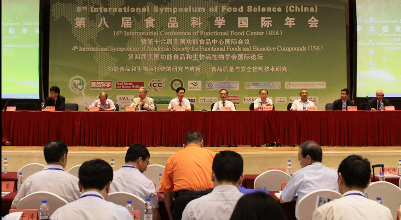
16th International Conference of FFC - 4th International Symposium of ASFFBC and 8th International Symposium of Food Science - "Functional Foods, Bioactive Compounds and Biomarkers: Research and Practical Application", July 26-27, 2014, Chengdu, Sichuan, China.
Main Conference Organizers: Danik Martirosyan, PhD, Sun Yong, PhD, and Shiming Li, PhD, Professor
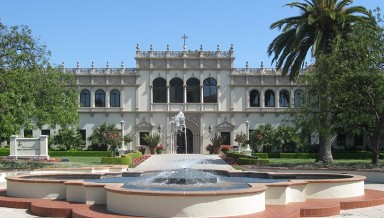
17th International Conference of FFC - 5th International Symposium of ASFFBC - "Discovery, Utilization and Control of Bioactive Components and Functional Foods" November 18-19, 2014, University of San Diego, San Diego, California, USA.
Organized by: FFC and United States Department of Agriculture-USDA (USDA ARS). Chairmen: Danik Martirosyan, PhD and Sean Liu, PhD, USDA ARS
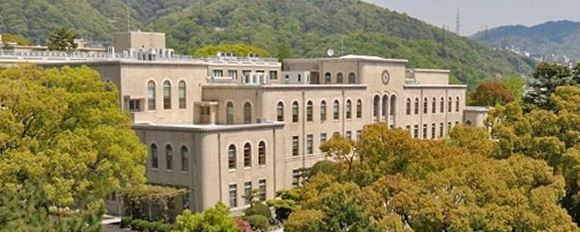
19th International Conference of FFC - 7th International Symposium of ASFFBC - "Functional and Medical Foods, Bioactive Compounds and Biomarkers: Longevity and Quality of Life", November 17-18, 2015, Kobe University, Kobe, Japan. Conference organized by FFC and and Kobe University
Chairmen: Danik Martirosyan, PhD and Yasuhito Shirai, PhD, Professor
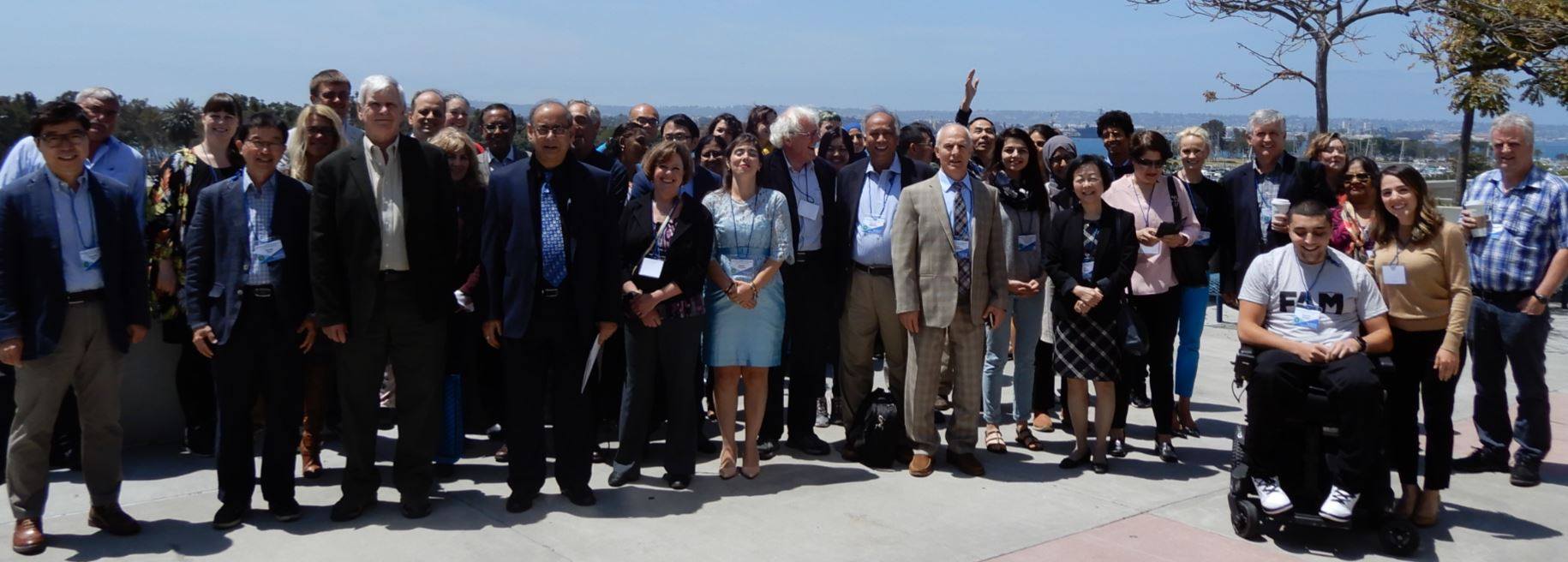
21st International Conference and Expo of FFC - 9th International Symposium of ASFFBC - "Functional Foods and Bioactive Compounds in Health and Disease: Science and Practice", March 25-26, 2017, San Diego Convention Center, San Diego, CA, USA
Chairmen: Danik Martirosyan, PhD, and Garth Nicolson, PhD, Professor, Nobel Prize nominee and the world's leading authority on cellular medicine

23rd International Conference of FFC -11th International Symposium of ASFFBC - "Functional Foods, Bioactive Compounds, and Biomarkers in Health and Disease: Science and Practice", April 24-25, 2018, San Diego Convention Center, San Diego, CA, USA
Chairman: Danik Martirosyan, PhD
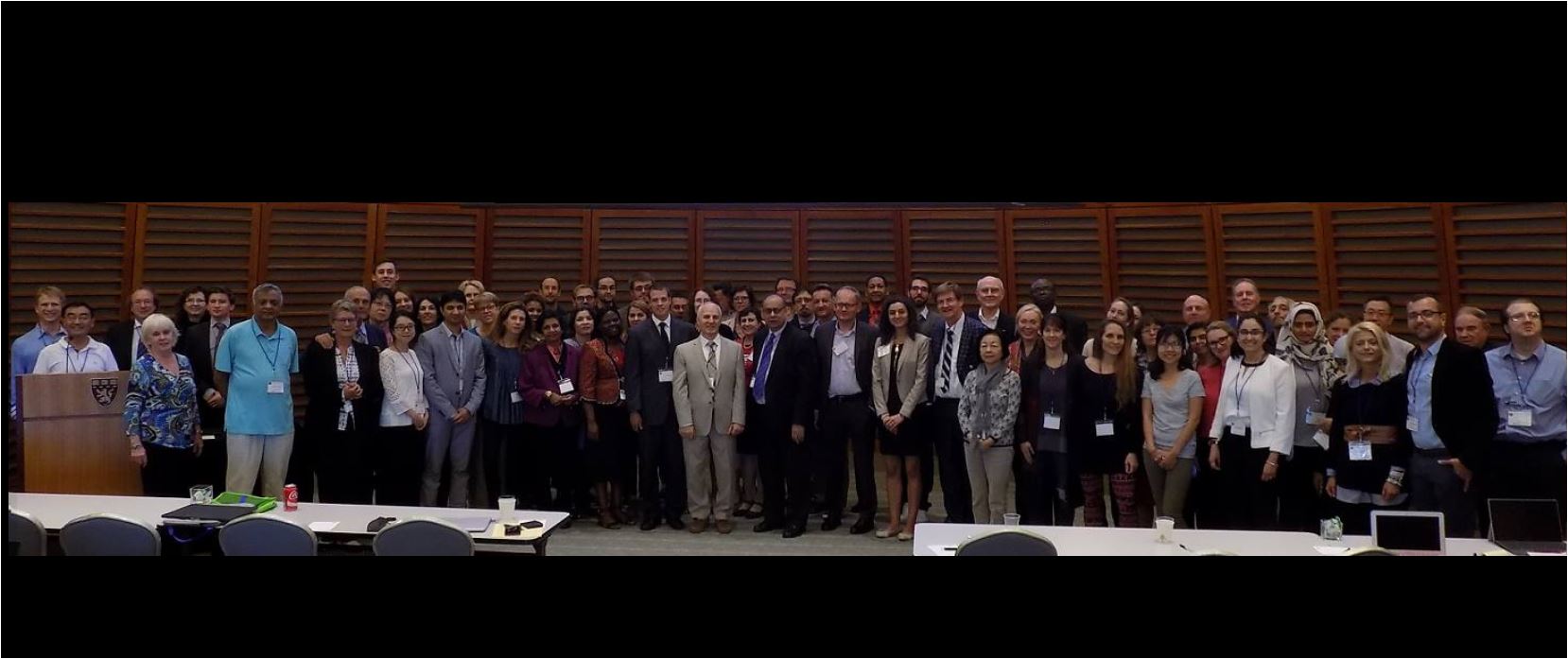
24th International Conference of FFC -12th International Symposium of ASFFBC - "Functional Foods, Nutrition and Chronic Diseases: Science and Practice", September 22-23, 2018, Joseph B. Martin Conference Center at Harvard Medical School, Boston, MA, USA. Organized by FFC and Nutrition/Metabolism Laboratory at Department of Surgery, Beth Israel Deaconess Medical Center/Harvard Teaching Hospital
Chairmen: Danik Martirosyan, PhD and Jin-Rong Zhou, PhD, Associate Professor, Harvard Medical School
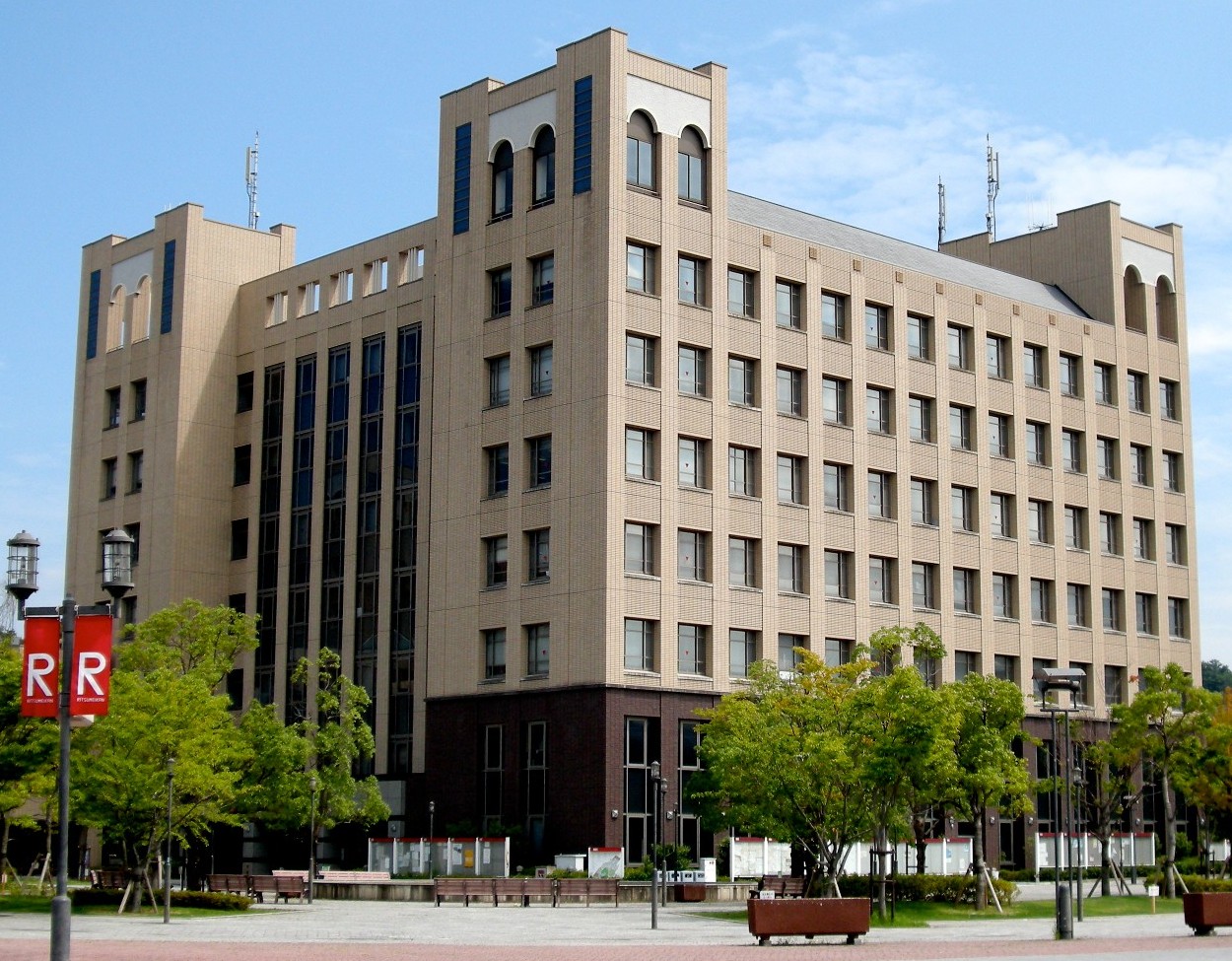 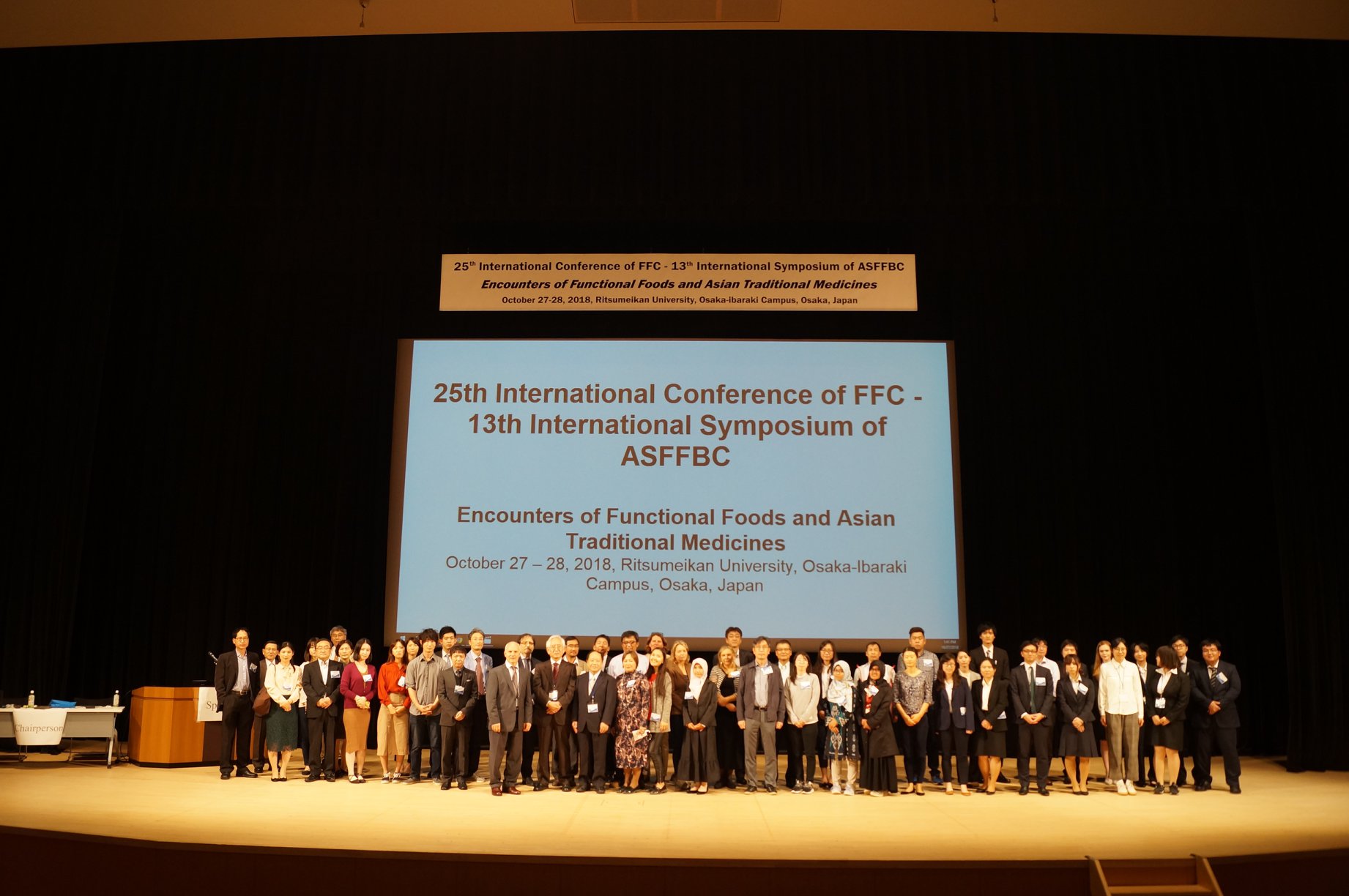
25th International Conference of FFC -13th International Symposium of ASFFBC - "Encounters of Functional Foods and Asian Traditional Medicines", October 27-28, 2018, Ritsumeikan University, Osaka-Ibaraki Campus, Osaka, Japan. Organized by Functional Food Center and Ritsumeikan University.
Chairmen: Dr. Danik Martirosyan and Mikio Nishizawa, MD, PhD, Professor
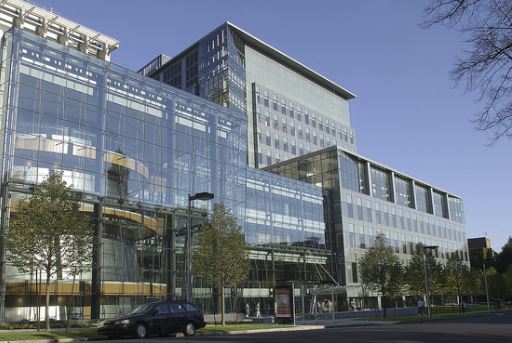
27th International Conference of FFC - 15th International Symposium of ASFFBC - "Functional Foods, Bioactive Compounds and Biomarkers: Health Promotion and Disease Management", September 20-21, 2019, Joseph B. Martin Conference Center at Harvard Medical School, Boston, MA, USA
Chairmen: Danik Martirosyan, PhD and Jin-Rong Zhou, PhD, Associate Professor, Harvard Medical School
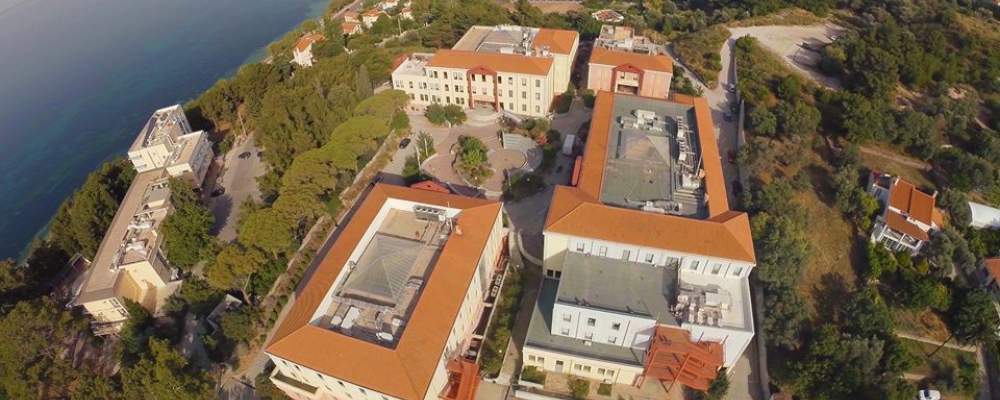
30th International Conference of FFC - 18th International
Symposium of ASFFBC - "Mediterranean Diet, Functional Foods and Bioactive Compounds: Science and Practice", September 23-25, 2022, Department of Food Science and Nutrition, University of the Aegean, Myrina, Lemnos, Greece (In-Person and Virtual/Live Online Even).
Conference organized by: FFC and Department of Food Science and Nutrition, University of the Aegean, Myrina, Lemnos, Greece.
Chairmen: Dr. Danik Martirosyan and Dr. Antonios Koutelidakis
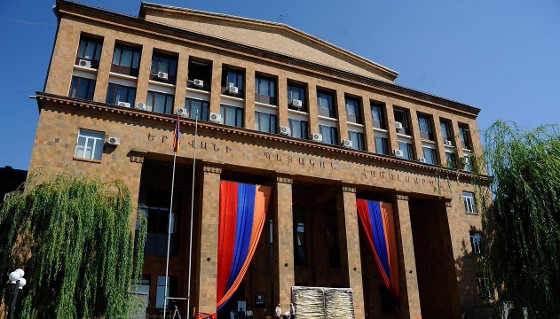
31st International Conference of FFC - 19th International
Symposium of ASFFBC - "Functional Foods and Bioactive Compounds: Modern and Medieval Approaches", September 29th - October 1st, 2023, Yereva State University, Yerevan, Armenia (In-Person and Virtual/Live Online Event)
Main Conference Organizers:
Functional Food Center(USA), Yereva State University, The Matenadaran, Mesrop Mashtots Institute of Ancient Manuscripts (Armenia), The National Academy of Sciences of Armenia
Coming Soon:
32nd International Conference & EXPO of FFC - 20th International Symposium of ASFFBC - "Discovery, Research and Utilization of Bioactive Compounds: Development of Healthy and Functional Food Products."
Main Conference: October 2-4, 2024, DoubleTree by Hilton Hotel in San Diego, CA, USA. (In-Person and Virtual/Live Online Event)
Satellite Conference: September 10-11, 2024, Armenian National Agrarian University in Yerevan, Armenia. (In-Person and Virtual/Live Online Event)
|
|
|